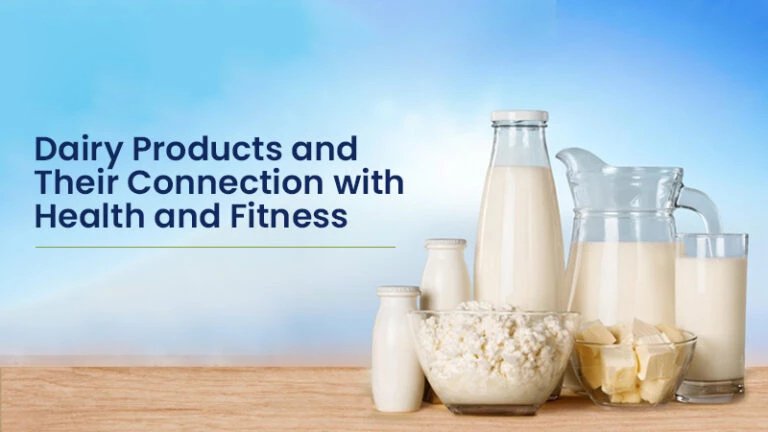In the realm of nutrition, dairy products have long held a significant place for their rich array of essential nutrients. From calcium to protein, these dairy delights play a vital role in maintaining optimal health and supporting fitness goals. In this comprehensive guide, we delve into the profound connection between dairy products and overall well-being, exploring their benefits, potential concerns, and how they fit into a balanced diet for those pursuing fitness goals.
Benefits of Dairy Products:
- Calcium for Strong Bones and Teeth: Dairy products are renowned for their calcium content, essential for maintaining strong bones and teeth. Adequate calcium intake is crucial, especially during childhood and adolescence when bone development is at its peak.
- Protein Powerhouse: Protein is vital for muscle repair and growth, making dairy products an excellent source for individuals engaged in fitness activities. Whey and casein, two types of protein found in dairy, are particularly valued for their amino acid profile and digestibility.
- Nutrient Density: Dairy products offer a spectrum of essential nutrients, including vitamins D, B12, riboflavin, and minerals like phosphorus and potassium. These nutrients support various bodily functions, from energy metabolism to immune health.
- Weight Management: Contrary to popular belief, research suggests that dairy consumption may aid in weight management. The protein and calcium in dairy products contribute to increased satiety, potentially reducing overall calorie intake.
- Hydration and Rehydration: Dairy products such as milk and yogurt can serve as effective sources of hydration, replenishing electrolytes and fluids lost during exercise.
Potential Concerns and Considerations:
- Lactose Intolerance: Some individuals may experience lactose intolerance, a condition characterized by difficulty digesting lactose, the sugar found in milk. However, lactose-free dairy options are available to accommodate such dietary needs.
- Fat Content: While dairy products provide valuable nutrients, they can also be a significant source of saturated fats. Choosing low-fat or fat-free options can help mitigate the risks associated with excessive saturated fat consumption.
- Allergies and Sensitivities: Dairy allergies and sensitivities are relatively common, prompting individuals to seek alternative sources of calcium and protein. Fortunately, there are numerous dairy-free alternatives available, such as fortified plant-based milks and cheeses.
- Hormones and Antibiotics: Concerns have been raised regarding the presence of hormones and antibiotics in dairy products. However, regulatory measures and industry standards ensure that dairy products are safe for consumption, with stringent protocols in place for monitoring and testing.
Incorporating Dairy into a Fitness-Oriented Diet:
- Pre-Workout Fuel: Dairy products can provide a convenient and nutritious pre-workout snack, offering a balance of carbohydrates and protein to fuel exercise performance.
- Post-Workout Recovery: Consuming dairy products post-exercise can support muscle recovery and replenish glycogen stores. Options such as chocolate milk are particularly popular due to their ideal carbohydrate-to-protein ratio.
- Balanced Meals and Snacks: Incorporating dairy into balanced meals and snacks throughout the day can help meet nutrient needs and promote satiety. Yogurt with fruit, cottage cheese with whole grain crackers, and cheese slices with vegetables are simple yet satisfying options.
- Personalized Approach: Recognizing individual dietary preferences and tolerances is essential when incorporating dairy into a fitness-oriented diet. Experimenting with different dairy products and alternatives can help individuals find what works best for their needs and goals.
Conclusion: Dairy products serve as valuable allies in the pursuit of health and fitness, offering a bounty of essential nutrients and supporting various aspects of physical well-being. While considerations such as lactose intolerance and fat content warrant attention, dairy can be included in a balanced diet through mindful selection and moderation. By understanding the benefits, potential concerns, and practical strategies for incorporation, individuals can harness the power of dairy to optimize their health and fitness journey.


